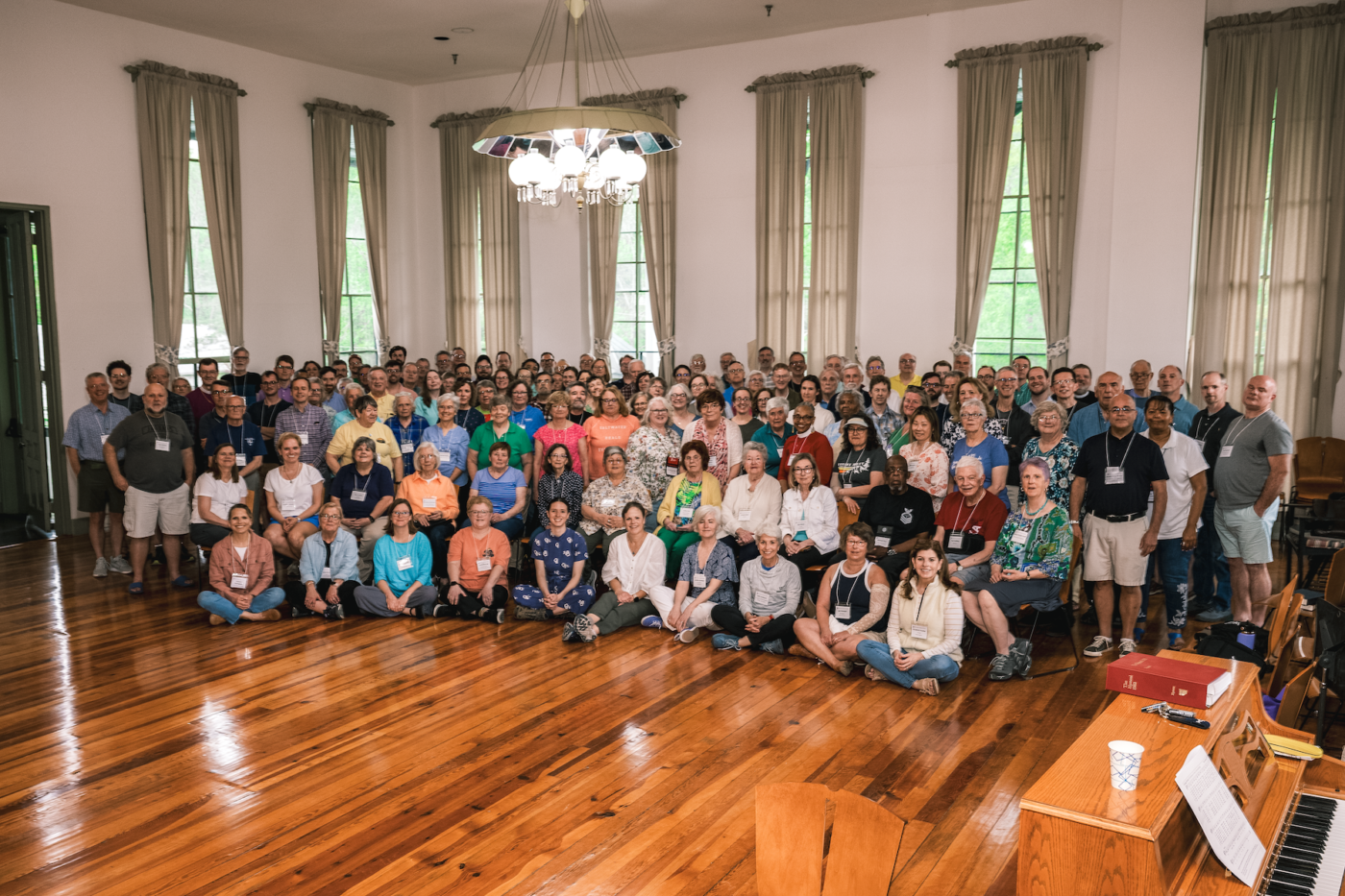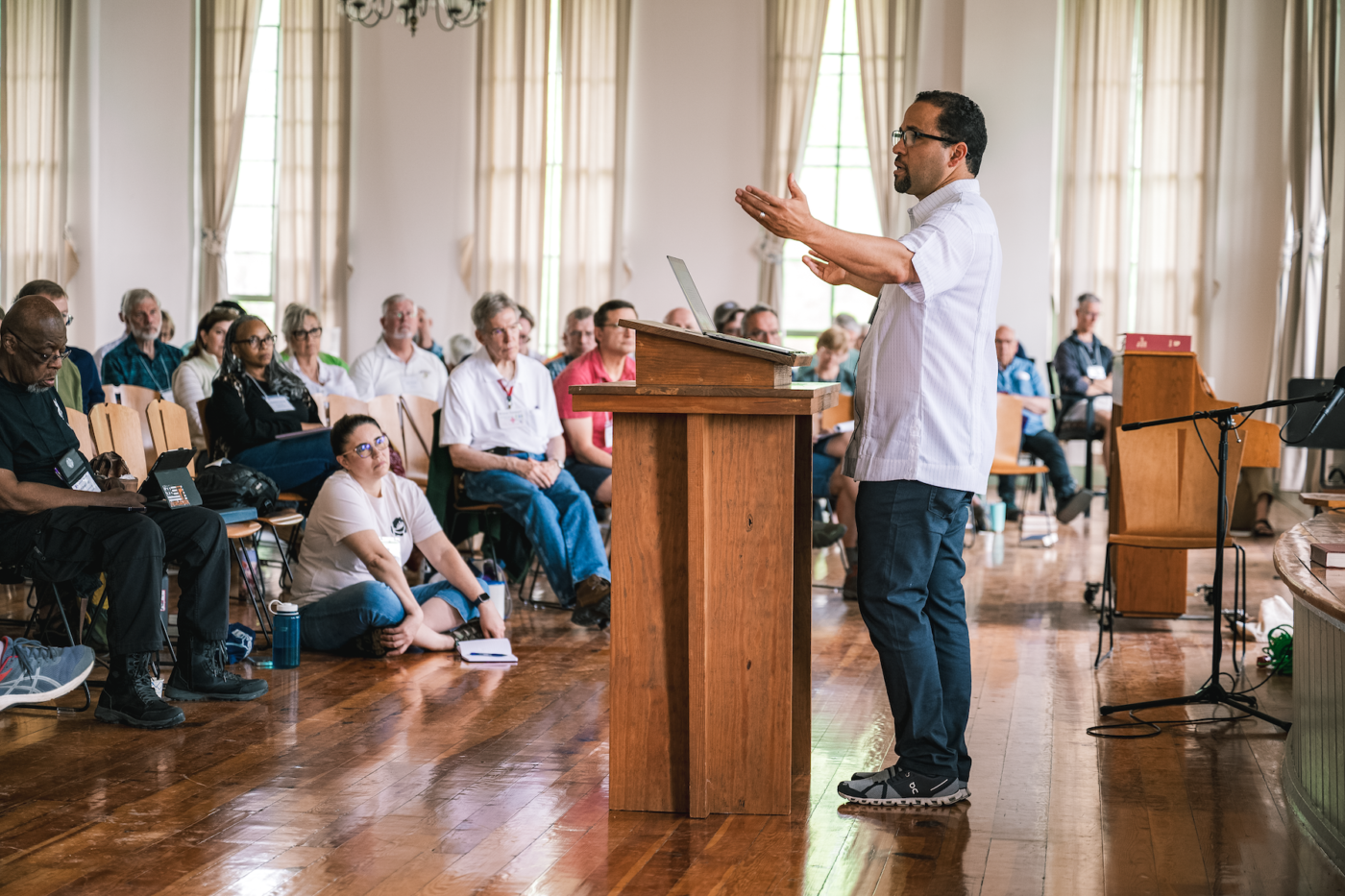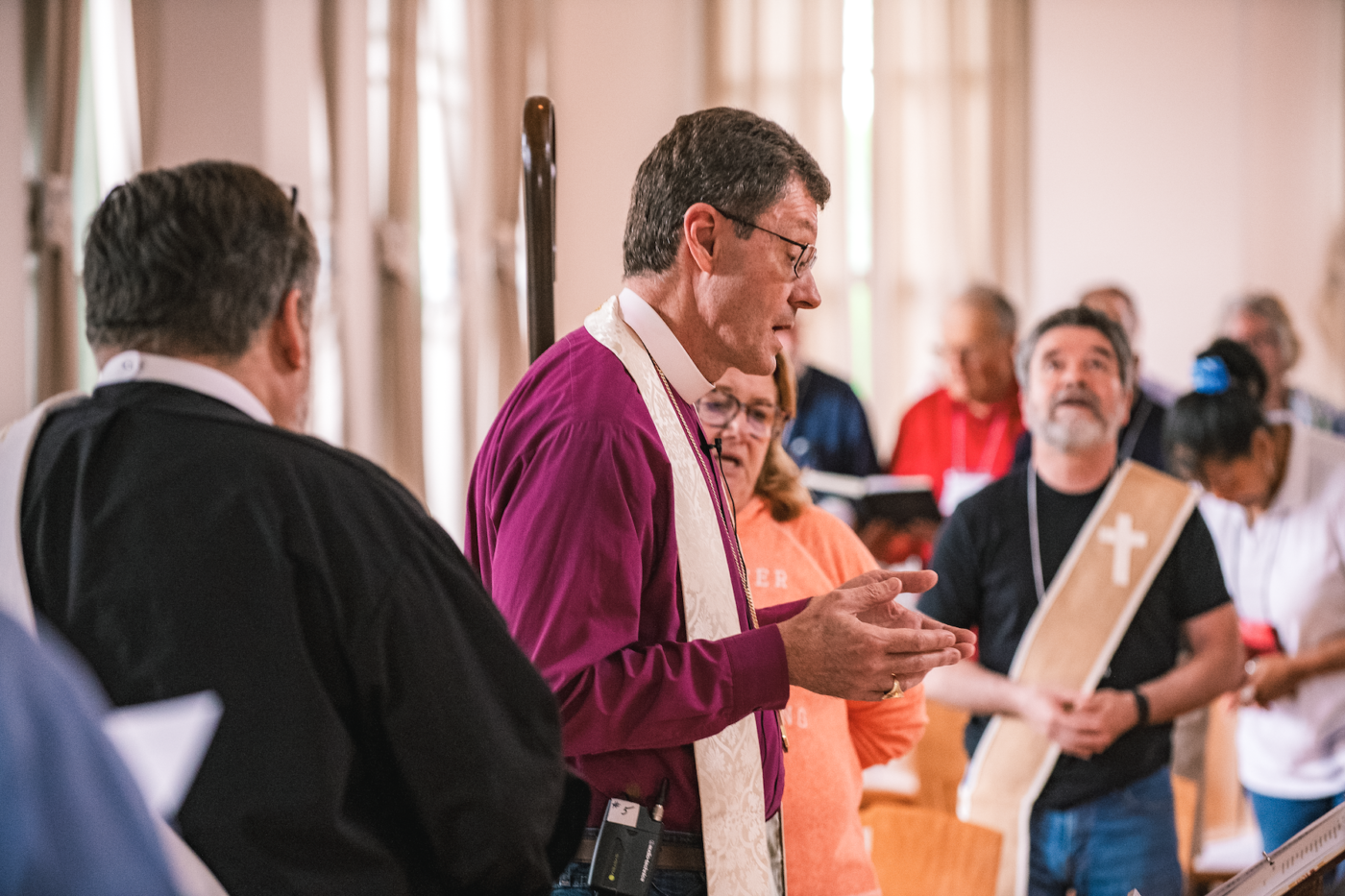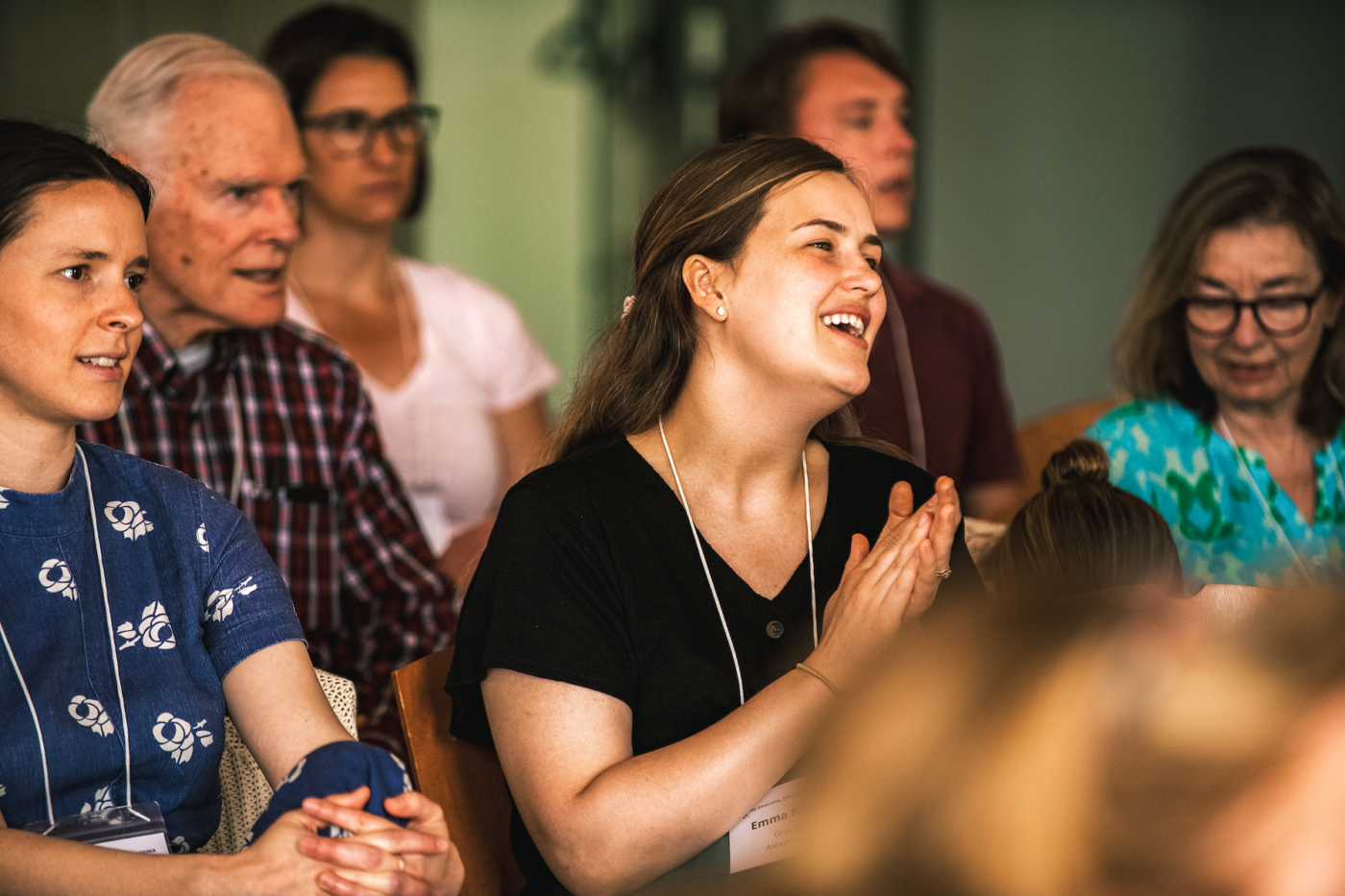
Diocese of Virginia clergy gathered last month at Shrine Mont, the diocesan conference center known for relaxing vistas, breathtaking rock formations and a hikers paradise called the Stairway to Heaven.
But they also grappled with how to deal with the real-world challenge of preaching and teaching the Gospel of Jesus in a politicized, racialized, and brutalized world.
The Rev. Dr. Luke Powery, of Duke Divinity School, challenged the more than 165 clergy to preach about healing a world in pain.
“There’s a great sense of hurt, whether it’s in relation to politics, whether it’s the divisiveness around race and conversations with universities removing diversity, equity, and inclusion offices, all these kinds of things,” said Powery, who teaches preaching at Duke. “Then there’s violence in our world, on our streets, in our local communities. But what can we explore about Jesus in relation to this? Because when we’re talking about preaching the Gospel, you can’t shy away from Jesus.”
Powery said the titles of his talks: Jesus and a politicized world, Jesus and a racialized world, and Jesus and a brutalized world “are about placing Jesus first. It’s like praying Come Lord Jesus into the brutalized world. Come Lord Jesus into the racialized world. Come Lord Jesus into the brutalized world. It’s both a prayer and our theme.”

Powery, who is Dean of the Duke University Chapel and Professor of Homiletics and African American Studies, also weaved in themes from his 2023 book, Becoming Human: The Holy Spirit and the Rhetoric of Race – a book he said was inspired by the work of the 20th Century Black theologian, educator, and author Howard Thurman, traditional African American Spirituals, and “the best” of Catholic liberation theology.
In Becoming Human Powery writes that Christians are faced with a profound choice: create a world defined by racial and political division, or dream of and work towards a beloved human community and embrace the inherent dignity of every human being. He also asserts that the church, through the art and power of preaching, has a unique opportunity to lead the country on a path to humanization and beloved community.

Episcopal Diocese of Virginia Bishop The Rt. Rev’d E. Mark Stevenson said book studies of Becoming Human over the past two years led by the Diocese’s Ministry for Racial Justice and Healing “have challenged many of us who preach to do more than simply deliver words—but to be agents of transformation and change.”
“Becoming Human urges us to not only remain faithful in preaching during troubled times, but to do the hard work of confronting racism, racial violence, colonialism, and white supremacy head-on using our pulpits as platforms for a more just and equitable world,” Bishop Stevenson said.
The Rev. Jennettarose Greene of St. Mary’s Episcopal in Arlington suggested having Powery facilitate the retreat because of his expertise in preaching, spirituality, and the intersection of faith and the arts. She believed he could provide clergy with insights into crafting powerful sermons, nurturing spiritual depth, and integrating the arts into worship and religious expression.
“His perspectives did help us develop a deeper understanding of connecting with congregations on a spiritual and emotional level, while exploring new dimensions of worship and expression within our congregations,” Greene said.
The Rev. David Curtis, a deacon serving at All Saints Episcopal, Richmond, said Powery also helped clergy appreciate how the political and religious worlds are one.
“When he was talking about Jesus and the politicized world, Dr. Powery reminded us politics is the civic life of citizens. That politics is really the world that surrounds us and is very different from partisanship,” Curtis said. “That Jesus was political without being partisan.”
Curtis also was encouraged by the increasing candor and openness during discussions about race and reconciliation at the retreat.
“My sense is that we are building on the work we have done in the past and that because we are continuing the conversations about race and reconciliation there is a growing trust and ability to listen more deeply to each other and to be even more honest about the history of our diocese,” Curtis said.
In Becoming Human Powery argues that the world views race as determining individual and group identity; and that there are racial differences that make some bodies less human than others. But Powery says the church knows another story: that of Pentecost, where the Holy Spirit embraces all bodies, all flesh, all tongues. In that view, the diversity of human bodies is one of the gifts of the Spirit. In that story, different kinds of materiality and embodiment are strengths to be celebrated rather than inconvenient facts to be ignored or feared.

Bishop Stevenson who recently called confronting racism “mission critical” for him and the Diocese promised that racial justice and discipleship would continue to shape his episcopate.
Stevenson said during the retreat that he intends to invite other well-known facilitators and speakers to future clergy retreats and at Diocesan conventions and that providing opportunities for clergy and lay people to grow and learn together is a top priority.
The Rev. Canon Dr. J. Lee Hill, Jr., Diocese of Virginia Canon for Racial Justice and Healing, will lead a Zoom study of Becoming Human this summer. Canon Hill said that the study is designed to support and encourage those engaged in preaching at the intersections of race, justice, and faith. Learn more and register for the series.